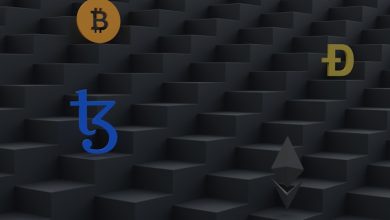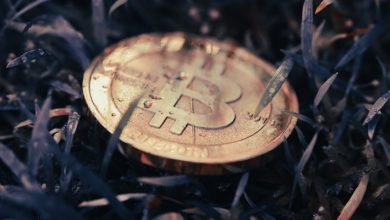The Role of Blockchain in Building the Metaverse Economy

- The Evolution of the Metaverse
- Exploring the Intersection of Blockchain and Virtual Reality
- Tokenization and Digital Assets in the Metaverse Economy
- The Impact of Decentralization on Virtual Worlds
- The Future of Digital Ownership in the Metaverse
- Smart Contracts and the Transformation of Online Economies
The Evolution of the Metaverse
The metaverse has come a long way since its inception, evolving into a multi-dimensional virtual world where users can interact, socialize, and transact with each other. This evolution has been driven by advancements in technology, particularly blockchain, which has played a crucial role in shaping the metaverse economy.
Blockchain technology provides a secure and transparent way to record transactions and verify ownership of digital assets within the metaverse. By using blockchain, users can have complete control over their virtual assets, ensuring that they are truly owned and cannot be duplicated or manipulated.
Moreover, blockchain enables the creation of decentralized autonomous organizations (DAOs) within the metaverse, allowing users to govern themselves and make decisions collectively. This decentralized governance structure ensures that the metaverse remains open, inclusive, and free from centralized control.
As the metaverse continues to grow and expand, the role of blockchain in shaping its economy will only become more prominent. By leveraging the power of blockchain technology, the metaverse can offer new opportunities for innovation, creativity, and economic growth. It is clear that blockchain is an essential building block in creating a thriving and sustainable metaverse economy for the future.
Exploring the Intersection of Blockchain and Virtual Reality
Blockchain technology has been increasingly integrated with virtual reality (VR) experiences, creating new opportunities for innovation and collaboration within the metaverse economy. The intersection of blockchain and VR enables secure transactions, provenance tracking, and digital asset ownership verification in virtual environments. This fusion of technologies opens up possibilities for decentralized applications and marketplaces where users can interact, exchange goods, and participate in virtual economies with greater autonomy and transparency.
One of the key benefits of combining blockchain with VR is the ability to create unique digital assets, or non-fungible tokens (NFTs), that can be bought, sold, and traded within virtual worlds. NFTs represent ownership of digital items such as virtual real estate, artwork, and avatars, allowing users to monetize their creations and establish verifiable scarcity in the digital realm. By leveraging blockchain technology, VR platforms can offer secure and tamper-proof systems for managing these assets, ensuring authenticity and protecting intellectual property rights.
Moreover, blockchain integration in VR environments can enhance user experiences by enabling cross-platform interoperability and seamless asset portability. With blockchain-based protocols, users can transfer their virtual possessions between different VR platforms, games, and applications without relying on centralized intermediaries. This interoperability fosters a more interconnected metaverse ecosystem where users can freely navigate and engage with diverse virtual experiences, fostering creativity, social interaction, and economic exchange.
In addition to facilitating asset ownership and interoperability, blockchain technology can also address challenges related to digital identity, privacy, and security in virtual environments. By implementing decentralized identity solutions and encryption mechanisms, VR platforms can enhance user privacy and data protection, mitigating risks associated with centralized data storage and identity theft. Blockchain’s immutability and cryptographic security features can safeguard user information and transactions, fostering trust and confidence in the metaverse economy.
Overall, the convergence of blockchain and virtual reality presents a transformative opportunity to redefine how we interact, transact, and create value in digital spaces. By harnessing the power of decentralized technologies, VR platforms can empower users to take control of their digital assets, identities, and interactions, paving the way for a more inclusive, transparent, and decentralized metaverse economy. As blockchain continues to evolve and integrate with VR applications, the possibilities for innovation and collaboration in the metaverse are virtually limitless.
Tokenization and Digital Assets in the Metaverse Economy
In the metaverse economy, tokenization plays a crucial role in representing digital assets. Through the use of blockchain technology, assets can be tokenized into unique digital tokens that are stored securely on the blockchain. This tokenization process allows for the fractional ownership of assets, enabling more people to participate in the economy.
Digital assets in the metaverse can range from virtual real estate to digital art and even in-game items. By tokenizing these assets, they can be bought, sold, and traded seamlessly on decentralized platforms. This opens up new possibilities for creators and investors to monetize their creations and investments in the metaverse.
Tokenization also brings transparency and security to the metaverse economy. Each token is uniquely identifiable on the blockchain, allowing for provenance tracking and reducing the risk of fraud. Smart contracts can be used to automate transactions, ensuring that all parties involved adhere to the agreed-upon terms.
As the metaverse economy continues to grow, the role of tokenization and digital assets will only become more significant. With blockchain technology at its core, the metaverse is poised to revolutionize the way we interact with digital assets and participate in the virtual economy.
The Impact of Decentralization on Virtual Worlds
Decentralization plays a vital role in shaping the virtual worlds within the Metaverse economy. By utilizing blockchain technology, virtual worlds can operate independently without the need for a central authority overseeing every transaction or interaction. This shift towards decentralization empowers users by giving them more control over their digital assets and identities.
One of the key impacts of decentralization on virtual worlds is the ability to create truly unique and scarce digital assets. Through the use of non-fungible tokens (NFTs), users can buy, sell, and trade one-of-a-kind items within these virtual environments. This not only adds a new layer of authenticity to the digital world but also opens up opportunities for creators to monetize their work in ways that were previously impossible.
Furthermore, decentralization fosters a sense of community and ownership within virtual worlds. Users are no longer at the mercy of centralized platforms that can change the rules at any moment. Instead, they can participate in governance decisions through decentralized autonomous organizations (DAOs) and have a say in the direction of the virtual world they inhabit.
Overall, the impact of decentralization on virtual worlds is transformative. It allows for greater creativity, ownership, and autonomy within these digital spaces, paving the way for a more inclusive and innovative Metaverse economy.
The Future of Digital Ownership in the Metaverse
The future of digital ownership in the metaverse is closely tied to the advancements in blockchain technology. Blockchain provides a secure and transparent way to verify ownership of digital assets within the virtual world. This technology ensures that users have full control over their virtual possessions, preventing fraud and unauthorized duplication.
One of the key benefits of blockchain in the metaverse is the concept of non-fungible tokens (NFTs). NFTs are unique digital assets that can represent anything from virtual real estate to in-game items. By using blockchain, these NFTs can be securely bought, sold, and traded, allowing for a new era of digital ownership in the metaverse.
As the metaverse continues to grow, blockchain technology will play an increasingly important role in shaping the economy within this virtual world. From enabling secure transactions to providing proof of ownership, blockchain is revolutionizing the way we interact with digital assets in the metaverse. With the rise of decentralized finance (DeFi) applications in the metaverse, blockchain will become even more integral to the economy, allowing for new ways to invest, earn, and exchange value within this virtual space.
In conclusion, the future of digital ownership in the metaverse is bright thanks to the transformative power of blockchain technology. By leveraging the security and transparency of blockchain, users can confidently buy, sell, and trade digital assets in the virtual world. As we continue to explore the possibilities of the metaverse, blockchain will undoubtedly be at the forefront of shaping the economy and ensuring a fair and secure environment for all participants.
Smart Contracts and the Transformation of Online Economies
Smart contracts play a crucial role in the transformation of online economies within the Metaverse. These self-executing contracts are coded with specific conditions and automatically enforce agreements when the conditions are met. By utilizing blockchain technology, smart contracts enable secure and transparent transactions without the need for intermediaries.
With the rise of decentralized finance (DeFi) applications in the Metaverse, smart contracts are becoming increasingly popular for a wide range of use cases, including lending, trading, and asset management. These programmable contracts provide a level of automation and efficiency that traditional contracts cannot match, revolutionizing the way online economies operate.
By leveraging smart contracts, participants in the Metaverse can engage in peer-to-peer transactions with greater speed and lower costs. This technology eliminates the need for trust between parties, as the terms of the contract are written into the code and executed automatically. As a result, smart contracts are paving the way for a more decentralized and democratized online economy.



